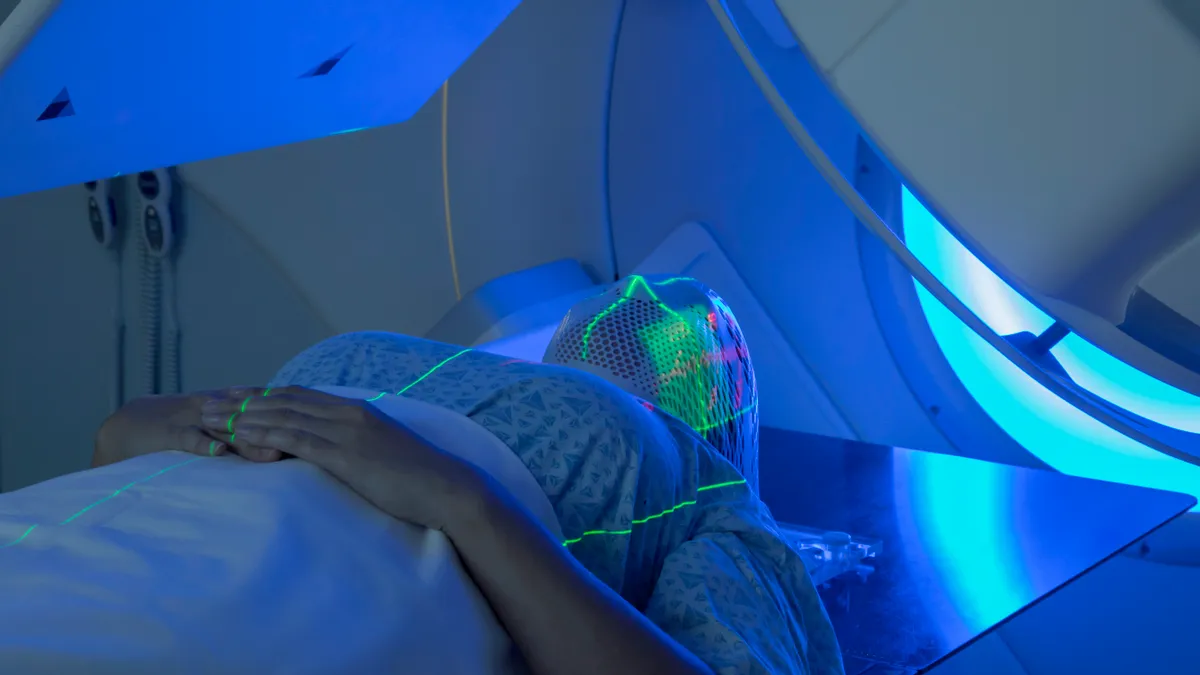Dive Brief:
- After cancer screenings for breast and colon cancers plummeted at the outset of the COVID-19 pandemic, they rebounded by the end of July, according to a new report in the Journal of General Internal Medicine that analyzed the private insurance claims of 6.8 million people ages 45 to 64.
- In fact, the rate of women seeking mammograms was higher by the end of July than in the months leading up to the pandemic. Prior to mid-March, or when the public health crisis began, the median weekly rate of mammogram screenings were 87.8 women per 10,000 beneficiaries. That figure improved to 88.2 screenings per 10,000 beneficiaries by the end of July.
- However, the rate of colonoscopies did not return to pre-pandemic levels, but returned to near normal, according to the researchers. In the months leading up to the crisis, median weekly colonoscopy rates were 15.1 per 10,000 beneficiaries and later rebounded to only 12.6 per 10,000 beneficiaries.
Dive Insight:
The fallout from the pandemic has fueled serious concerns about the long-term health consequences for Americans as they delayed care either due to pandemic-related restrictions or their own fears about returning to in-person care.
Healthcare facilities across the country shut down many of their operations for months in an effort to preserve precious resources and to stem the rising tide of cases. For hospitals the pause in electives meant losing out on $20 billion in care not delivered.
But as facilities reopened again, healthcare leaders continued to note depressed patients volumes, again stoking fears about the long-term health prospects for patients. Intervening early and detecting cancers sooner rather than later can lead to improved health outcomes for patients.
This latest report from researchers at Rand, Harvard Medical School and Castlight Health, may ease some of those worries. These adult patients returned for screenings even as the country saw a surge of cases in the summer in some areas, researchers highlighted.
"These are the first findings to show that, despite real fears about the consequences of drop-off in cancer screens, health facilities figured out how to pick this back up after the initial pandemic restrictions," Ryan McBain, lead author and policy researcher at Rand, said in a statement.
The medical claims data from Castlight, a health benefits manager for employer-sponsored plans, show cancer screenings for breast cancer and colonoscopies cratered in April, falling 96% and 95%, respectively.
Researchers pointed out that the rate of decline for colonoscopies was more pronounced in high-income counties. No significant demographic trends were evident in the rates of mammograms.
Still, there are limitations to this research, which may temper some of the enthusiasm.
The report does not include data for the uninsured or those with public plans such as Medicare or Medicaid. And it does not take into account alternate forms of colorectal cancer screenings such as FOBT, or fecal occult blood tests, which test stool samples for signs of cancer.
As more more data roll in on 2020, researchers have been keen to study patient volume trends.
A Commonwealth Fund report found that outpatient visits held steady in the last month of 2020 even amid another surge in cases. However, looking at the entirety of 2020, the study found trends varied by age group. While pediatric offices were hit the hardest, visits to certain specialists, including the rheumatologist, actually exceeded pre-pandemic levels.














